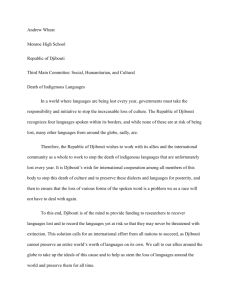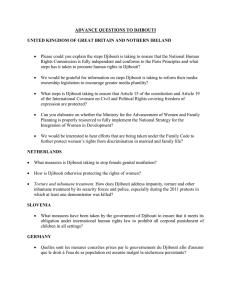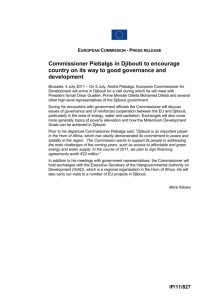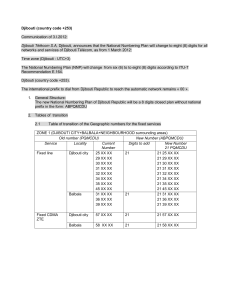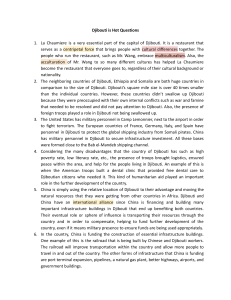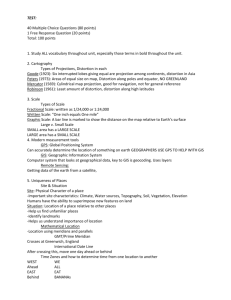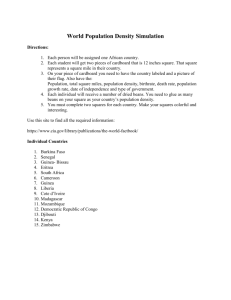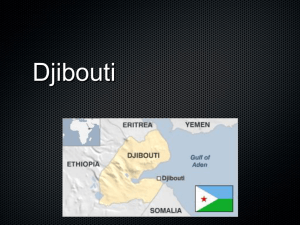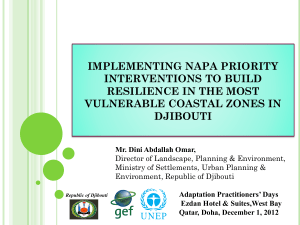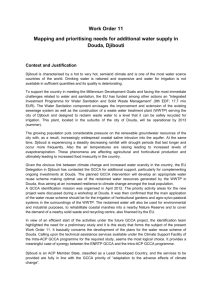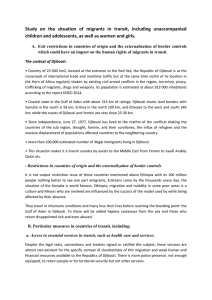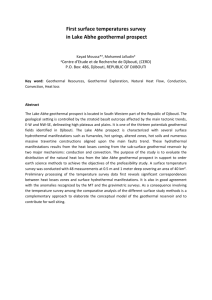Julie Surfus
advertisement
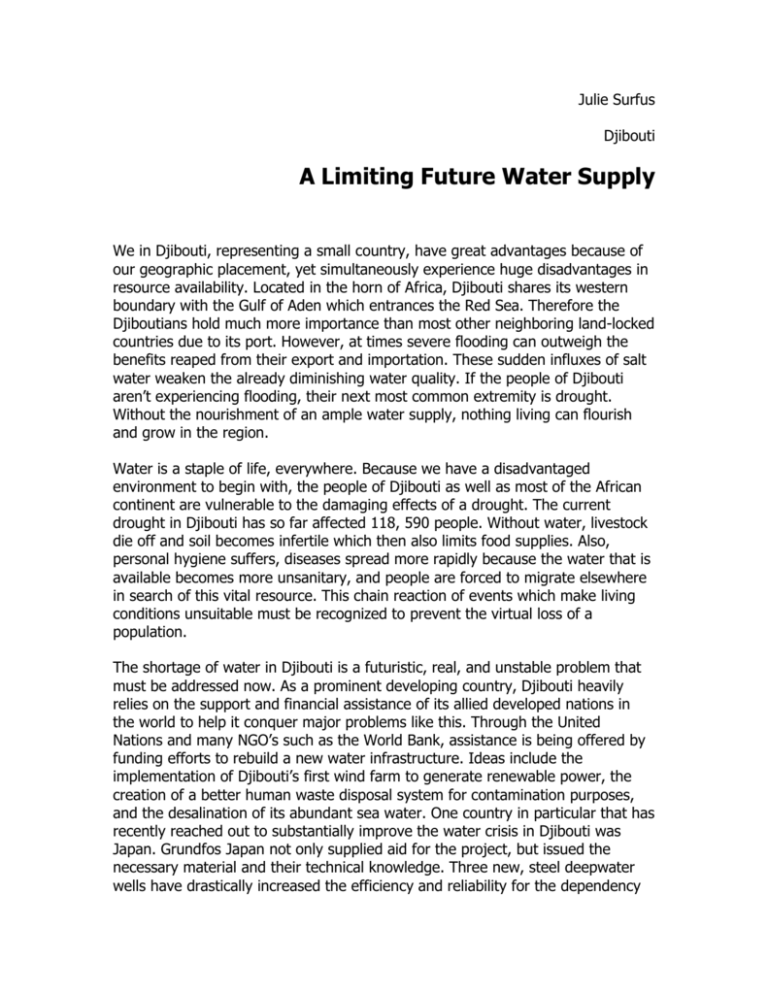
Julie Surfus Djibouti A Limiting Future Water Supply We in Djibouti, representing a small country, have great advantages because of our geographic placement, yet simultaneously experience huge disadvantages in resource availability. Located in the horn of Africa, Djibouti shares its western boundary with the Gulf of Aden which entrances the Red Sea. Therefore the Djiboutians hold much more importance than most other neighboring land-locked countries due to its port. However, at times severe flooding can outweigh the benefits reaped from their export and importation. These sudden influxes of salt water weaken the already diminishing water quality. If the people of Djibouti aren’t experiencing flooding, their next most common extremity is drought. Without the nourishment of an ample water supply, nothing living can flourish and grow in the region. Water is a staple of life, everywhere. Because we have a disadvantaged environment to begin with, the people of Djibouti as well as most of the African continent are vulnerable to the damaging effects of a drought. The current drought in Djibouti has so far affected 118, 590 people. Without water, livestock die off and soil becomes infertile which then also limits food supplies. Also, personal hygiene suffers, diseases spread more rapidly because the water that is available becomes more unsanitary, and people are forced to migrate elsewhere in search of this vital resource. This chain reaction of events which make living conditions unsuitable must be recognized to prevent the virtual loss of a population. The shortage of water in Djibouti is a futuristic, real, and unstable problem that must be addressed now. As a prominent developing country, Djibouti heavily relies on the support and financial assistance of its allied developed nations in the world to help it conquer major problems like this. Through the United Nations and many NGO’s such as the World Bank, assistance is being offered by funding efforts to rebuild a new water infrastructure. Ideas include the implementation of Djibouti’s first wind farm to generate renewable power, the creation of a better human waste disposal system for contamination purposes, and the desalination of its abundant sea water. One country in particular that has recently reached out to substantially improve the water crisis in Djibouti was Japan. Grundfos Japan not only supplied aid for the project, but issued the necessary material and their technical knowledge. Three new, steel deepwater wells have drastically increased the efficiency and reliability for the dependency of clean, drinkable water. Each component of every pump is built from environmentally sensitive materials taking into consideration the unpredictable rain/heat patterns the area is known for and the projected prediction that average precipitation levels are expected to decrease as average temperature is predicted to increase over time. This new water was found at over 200 meters below the ground surface providing the capital city, Djibouti-ville, water that otherwise was not readily available to them. Djibouti does not have permanent surface bodies of water, but rather relies on groundwater, and many rely on the pumps in the city to retrieve it. Therefore, this contribution by Japan is of huge importance towards setting goals in the right direction and for this we extend a big “gadda ge” (thank you). Djibouti is lucky in the sense that it holds other nation’s interests to help because of its important global factors. These aspects such as housing a regional banking center with a free port that sends and receives materials to and from other countries are relevant to the prosperity of other aspiring nations. We have the support of many organizations willing to make a difference to our limited water supply, and these numerous proposed solutions have us on the right path. However, the overall mindset we should maintain when formulating resolutions should be to help restore more than just one country. Only so much can be done, yet basic knowledge is so easy to give. When Japan became involved in our water crisis, not only did they install new pumps but informed the people on how to manage them and educated them how to better attain their daily water. If more countries administered advice to other countries regardless of their global significance, we could be improving Africa a lot faster and collectively, as a whole.
